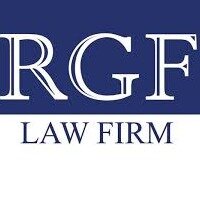Best Real Estate Lawyers in Puerto Rico
Share your needs with us, get contacted by law firms.
Free. Takes 2 min.
Free Guide to Hiring a Real Estate Lawyer
Or refine your search by selecting a city:
List of the best lawyers in Puerto Rico
About Real Estate Law in Puerto Rico
Real estate law in Puerto Rico encompasses all legal aspects related to the acquisition, transfer, and sale of property in the region. As a U.S. territory, Puerto Rico has a distinct legal system that blends aspects of American law with Hispanic and Caribbean influences, impacting real estate transactions. The lush island is an attractive destination for both local and international investors, homeowners, and businesses seeking relocation or expansion. Understanding local laws and procedures is crucial, as real estate practices in Puerto Rico may differ considerably from those in mainland United States.
Why You May Need a Lawyer
There are several common situations in which individuals and businesses may require legal assistance in real estate matters in Puerto Rico:
- Property Transactions: Buying or selling property requires detailed knowledge of local law, tax implications, and specific procedures to ensure that transactions are valid and binding.
- Property Disputes: Disputes may arise with neighbors, tenants, or between parties in a transaction, necessitating legal intervention to resolve complex issues such as boundary disputes or lease agreements.
- Inheritance and Estate Planning: Navigating the inheritance laws in Puerto Rico is essential for ensuring that property is passed on according to the owner's wishes.
- Development and Zoning Issues: Challenges with development or changes in land use often require a comprehensive understanding of local zoning laws and regulations.
- Title Issues: Legal help may be needed to clear or dispute title issues, which are common in property transactions.
Local Laws Overview
Key aspects of local laws in Puerto Rico relevant to real estate include:
- Property Registry System: Puerto Rico's Property Registry is a crucial element in confirming property titles and ensuring that there is clear and undisputed ownership.
- Taxation: Understand property taxes and any applicable transfer taxes which are levied on real estate transactions.
- Condos and Common Property Law: Most properties, especially in urban areas, fall under stringent rules that govern condominium law and the management of common areas shared among multiple property owners.
- Zoning Regulations: Each municipality may have different rules governing land use, requiring developers and property buyers to consult zoning plans and local government regulations.
Frequently Asked Questions
What is the process for buying property in Puerto Rico?
The process involves several steps, including negotiating a sales price, performing due diligence, signing a purchase contract, obtaining financing if needed, and finally, closing the sale and recording the deed.
Do I need to speak Spanish to handle real estate matters in Puerto Rico?
While many documents are available in Spanish, legal professionals and real estate agents are often bilingual. It is advisable to have important documents translated to avoid misunderstandings.
Are there specific restrictions for foreign buyers in Puerto Rico?
There are generally no restrictions for foreigners buying property in Puerto Rico. However, understanding tax implications and ensuring compliance with all legal requirements is crucial.
What taxes should I be aware of when purchasing property?
Buyers should be aware of property taxes, which are assessed annually, as well as transfer taxes, which apply when property ownership changes hands.
Can I get title insurance in Puerto Rico?
Yes, title insurance is available and is recommended to protect against future claims against your property.
How is property succession handled under Puerto Rican law?
Property succession is influenced by Puerto Rican inheritance laws that prioritize certain heirs and require careful planning to align with the owner's wishes.
Are there homestead protections in Puerto Rico?
Yes, there are homestead protection laws in place to protect a primary residence from creditors under certain circumstances.
How can I verify property ownership?
The Property Registry in Puerto Rico serves as the official record to verify property ownership and any encumbrances against a property.
What is the role of a notary in a real estate transaction?
Notaries in Puerto Rico play a significant role in the closing process, including preparing, reviewing, and legalizing property documents.
What should I know about zoning laws when buying a property?
It is crucial to verify the zoning regulations that apply to the property to understand what developments or usage are legally permitted.
Additional Resources
For further assistance, consider the following resources:
- Office of the Property Registry: Provides official records of property ownership.
- Puerto Rico Legal Services: Offers legal assistance to those who qualify based on income requirements.
- Local Bar Associations: Can connect you with experienced real estate attorneys in your area.
- Municipal Planning Offices: Help clarify zoning and development regulations.
Next Steps
If you need legal assistance with a real estate matter in Puerto Rico:
- Assess Your Situation: Clearly define your issue, whether it is a transaction, dispute, or legal clarification.
- Find a Qualified Attorney: Search for a licensed attorney specializing in real estate law in Puerto Rico. Consider reaching out to local bar associations for recommendations.
- Prepare Your Documentation: Gather all relevant documentation, such as property titles, contracts, and correspondence, to provide your attorney with a comprehensive understanding of your situation.
- Consultation: Schedule a consultation to discuss your case, understand the legal landscape, and receive advice on the best course of action.
Lawzana helps you find the best lawyers and law firms in Puerto Rico through a curated and pre-screened list of qualified legal professionals. Our platform offers rankings and detailed profiles of attorneys and law firms, allowing you to compare based on practice areas, including Real Estate, experience, and client feedback.
Each profile includes a description of the firm's areas of practice, client reviews, team members and partners, year of establishment, spoken languages, office locations, contact information, social media presence, and any published articles or resources. Most firms on our platform speak English and are experienced in both local and international legal matters.
Get a quote from top-rated law firms in Puerto Rico — quickly, securely, and without unnecessary hassle.
Disclaimer:
The information provided on this page is for general informational purposes only and does not constitute legal advice. While we strive to ensure the accuracy and relevance of the content, legal information may change over time, and interpretations of the law can vary. You should always consult with a qualified legal professional for advice specific to your situation.
We disclaim all liability for actions taken or not taken based on the content of this page. If you believe any information is incorrect or outdated, please contact us, and we will review and update it where appropriate.
Browse real estate law firms by service in Puerto Rico
Puerto Rico Attorneys in related practice areas.
Browse real estate law firms by city in Puerto Rico
Refine your search by selecting a city.










